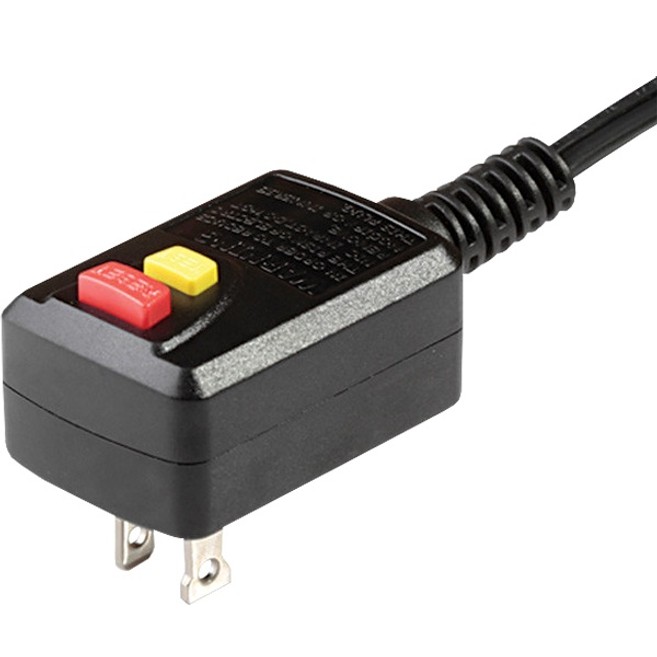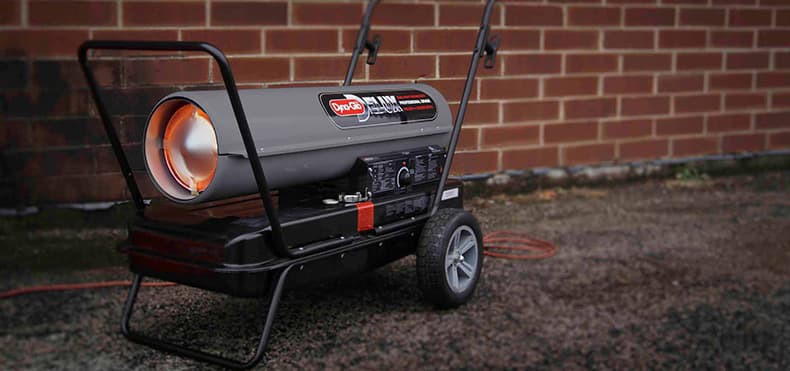In the quest for a warm and comfortable home, selecting the right heater is essential. As a smart homeowner, you understand the importance of investing in a heating solution that not only fits your functional needs but also aligns with your lifestyle.
This comprehensive Heater Buying Guide will help you navigate through the many options available, from space heaters and electric fireplaces to outdoor heaters and various stove types, so you can confidently choose the ideal heater for your home's unique needs.
Things to Look for When Buying a Heater
Consider Square Footage and Wattage
Selecting the right heater starts with understanding the dimensions and heating requirements of the space you're trying to heat. As a rule of thumb, you should plan for approximately 10 watts of heating power per square foot of space to achieve optimal warmth. For instance, a 150-square-foot room would need a heater with a 1,500-watt capacity to provide effective comfort during colder months.
But, there are a few different conditions to this rule:
- Large Ceilings: The calculation above is based on the assumption that the space has standard 8-foot ceilings. But if the space has higher ceilings, you'll likely need about 25 percent more heating capacity to get the job done right. So, take your wattage calculation and times it by 1.25 to get a more accurate estimate.
- Poor Insulation: Insulation plays a big part in how well a heater warms a certain space. If you have poor insulation, use 12 watts per square foot, rather than 10.
- Infrared Heating: If you are using an infrared heater, you'll likely be able to heat larger areas and rooms than the calculation above suggests.
.jpg?w=657)
Different Heater Types and Their Benefits
There are many different types of heaters, each designed to cater to specific needs and preferences. The basic heater styles are space heaters, electric fireplaces, outdoor heaters, wood-burning, electric, pellet, and gas stoves, and industrial and garage heaters.
Beyond those styles, there are also multiple types of heat that these devices can output, some better for certain situations than others.
- Radiant heaters are known for direct heat delivery, great for targeted warmth, and quick heating.
- Convection heaters circulate air efficiently, making them suitable for larger spaces requiring consistent temperature maintenance.
- Oil-filled radiators and space heaters, although slower to heat, provide a quiet and steady warmth, maintaining heat even after being switched off.
Understanding these distinctions can guide you towards a more informed purchasing decision.
Features
 Modern space heaters can have any number of advanced features that make them easier to control, more energy efficient, and safer to use. We recommend looking for heaters with remote controls or remote thermostats, programmable scheduling to run the heater only when it's needed, and safety features like GFCI plugs and overheat protection.
Modern space heaters can have any number of advanced features that make them easier to control, more energy efficient, and safer to use. We recommend looking for heaters with remote controls or remote thermostats, programmable scheduling to run the heater only when it's needed, and safety features like GFCI plugs and overheat protection.
Noise Levels
Most heaters are almost entirely silent as they operate, so unless you need a larger, high-powered heater, you won't notice their presence, even if they're operating at max power.
However, high-powered industrial and garage heaters, like fan-forced heaters, will have a larger noise level while operating, because they often use a fan to push hot air into the far reaches of larger spaces.
Efficiency
Modern heaters often come with energy-saving features like programmable thermostats, eco modes, and timers, allowing you to optimize their operation and reduce unnecessary energy consumption.
Electric heaters are thought to be 100 percent energy efficient because they transform all of the energy they use into heat. However, there's still a question of how effectively they distribute that heat within an area, and how much energy they require to output that heat. Several tips and tricks make selecting an energy-efficient space heater easier.
Other types of heaters, like those that burn gas, wood, or wood pellets, will have different efficiency ratings based on their design and fuel source.
Types of Residential Heaters to Consider
Space Heaters
Space heaters come in many shapes and sizes to offer a convenient solution for warming up specific areas or spaces in your home.
With options ranging from small tower heaters to baseboard heaters and wall-mounted heaters, these appliances can rapidly heat rooms of varying sizes. Sometimes portable, and sometimes installed on a wall or baseboard, these versatile models are a popular choice among homeowners seeking a simple heating solution.
Read more about Space Heater features, technology, and considerations in our Space Heater Buying Guide.
Electric Fireplaces
Electric fireplaces provide the warmth and charm of a traditional fireplace without the maintenance or installation challenges. These units are designed to emulate the visual appeal of natural flames, offering a cozy ambiance with adjustable flame settings. Unlike their wood-burning counterparts, electric fireplaces are typically energy-efficient and can be plugged into standard outlets, making them suitable for almost any room. They offer a balance of aesthetics and practicality, adding both warmth and a decorative element to any living space.
Our Electric Fireplaces Buying Guide has more information about these devices.
Wood-Burning, Electric, Pellet, and Gas Stoves
Wood-Burning, Electric, Pellet, and Gas Stoves are robust and effective heating options for small, medium, and large spaces. But each type of stove has different advantages and drawbacks.
- Wood-burning stoves are timeless classics, delivering high heat output with the aromatic appeal of burning wood.
- Electric stoves, on the other hand, offer ease of use with remote control features.
- Pellet stoves provide a balance between traditional and modern heating, using compressed wood pellets as fuel, often noted for their efficiency and environmental benefits.
- Natural gas stoves offer convenience and consistent heat, perfect for areas where natural gas lines are accessible.
Each type of stove requires specific considerations regarding installation, venting, and fueling, which should be factored into purchasing decisions.
Outdoor Heaters
Outdoor heaters make your outdoor living spaces, like patios, decks, garages, and workshops, comfortable even in cooler months, when the weather gets unpleasant.
These heaters come in three main types: freestanding, wall-mounted, and table-style units. Freestanding units, often powered by propane, are particularly versatile with their portability and the ability to heat large areas quickly. Wall-mounted options, mostly electric, save floor space, making them ideal for compact gathering spaces. Tabletop heaters offer both functionality and form, doubling as heating elements and surface supports for gatherings.
Our Outdoor Heater Buying Guide is a resource with more information, considerations, and tips about selecting the right outdoor heater model.
Industrial and Garage Heaters: Meeting Heavy-Duty Needs
Garage and industrial heaters are specialized heaters designed for demanding commercial environments, like large warehouses, workshops, and garages.
These heaters come in various forms, electric, natural gas, and propane, each with distinct advantages and disadvantages. Electric heaters are popular for their safety and efficiency, offering options like wall-mounted and ceiling-mounted designs, which keep them out of the way while delivering consistent warmth. But they require a power supply to operate, which may not always be handy on job sites and in other commercial areas.
Natural gas and propane heaters are powerhouses with high BTU outputs capable of quickly warming large and poorly insulated spaces like warehouses or workshops. These models are often favored for their robust capacity to combat cold temperatures outdoors or in particularly drafty areas. The downside is that they usually can't be used inside, which limits their usability.
Key Considerations for Industrial and Garage Heaters
When selecting an industrial or garage heater, a few critical factors should guide your decision-making process:
- Space Size and Insulation: Larger spaces or those with poor insulation require heaters with higher BTU outputs to maintain a comfortable temperature.
- Power Source Availability: Consider whether you have access to 240V outlets for more robust electrical heaters or space for propane tanks when choosing a gas model.
- Safety Features: Look for units with built-in features like tip-over switches and overheat protection to ensure safety during operation.
Frequently Asked Questions About Heaters
What's the Difference Between Space Heaters and Baseboard Heaters?
Space heaters offer direct, single-zone heating, available as portable units or installed on walls and baseboards. Baseboard heaters, a type of space heater, are ideal for consistent, efficient warmth in specific areas, installed along walls to circulate warm air.
How Do Electric Baseboard Heaters and Space Heaters Compare for Energy Efficiency?
Both baseboard heaters and space heaters are exceptionally energy-efficient when they are sized correctly and used in the right conditions. Electric baseboard heaters are designed for long-term efficiency, providing a consistent level of warmth while minimizing energy wastage during continuous use. Space heaters are used to provide direct heat to a space quickly, but could consume more energy over time if used as the primary heating source.
Do Space Heaters Have Any Safety Concerns?
Space heaters are generally safe, but users should be aware of safety considerations. Place heaters three feet from flammable materials unless otherwise specified. In wet conditions, use only GFCI heaters designed to resist shock. We recommend models with safety features, like overheat protection and tip-over cutoff technology, and certifications from ETL, UL, or CSA for added reassurance. For more guidance, see Sylvane's detailed portable heater safety tips guide.
Can You Leave a Space Heater On All Night?
Depends on the space heater you choose. Most portable space heaters are meant to be used for short periods of time, 1 to 5 hours at a time, and should be monitored to make sure they donât overheat or risk igniting objects near them. But some space heaters, like the DeLonghi Comfort Temp Full Room Radiant Heater or the King Electric Baseboard Heater K Series 120V, are designed for long-term operation.
Can Gas-Powered Patio Heaters Be Used In A Garage?
Gas-powered patio heaters, while effective for outdoor environments, are not recommended for use in garages. The principal concern here is the potential for carbon monoxide build-up, particularly in enclosed spaces without adequate ventilation. Carbon monoxide is a colorless, odorless gas that is hazardous, and its accumulation in confined areas can be lethal. So it's critical to consider electric alternatives specifically designed for indoor use.
Should Garage Heaters Be On The Floor or Ceiling?
Depending on the space available and the need, garage heaters can be either ceiling- or wall-mounted, if the heater design allows this. Placing the heater on the floor can be just as effective if you have the floor space available.
Which Heater is Right For My Home?
As you search for the perfect heater (or heaters) for your home, understanding the nuances of each type is vital. By considering factors such as sizing, efficiency, noise levels, and specific features, you can make an informed decision that suits your unique requirements.
Whether you're looking to warm a cozy nook with a space heater, enjoy the ambiance of an electric fireplace, or ensure comfort in your garage with an industrial heater, thoughtfully weighing your options will lead to the ideal choice.
For more help selecting the right heater for your home, contact Sylvane's product experts at [email protected] or by calling 1-800-934-9194.



